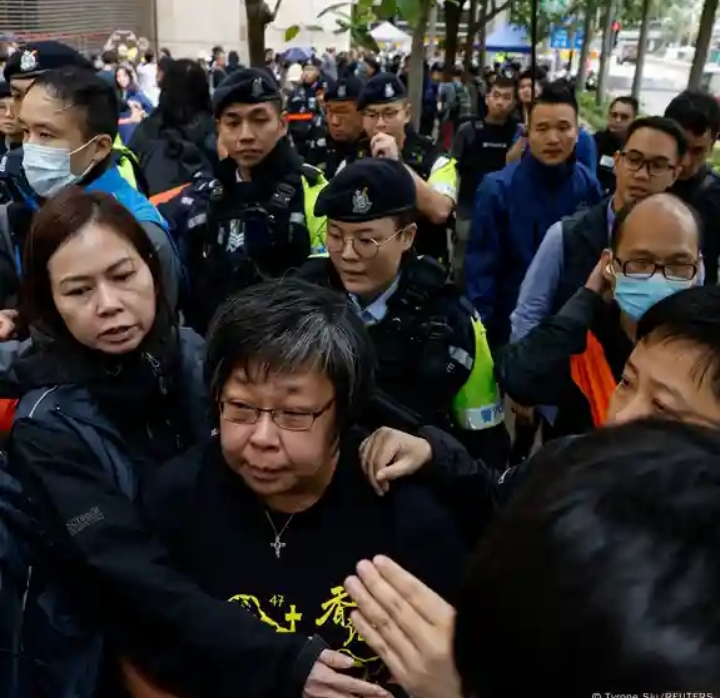The Trump administration sanctioned six Chinese and Hong Kong officials for undermining Hong Kong's autonomy and using the national security law to target pro-democracy activists. The sanctions freeze assets and ban financial transactions with them.
Trump Administration Sanctions Chinese and Hong Kong Officials Over Repression of Activists


In one of its earliest major foreign policy actions, the Trump administration has imposed sanctions on six senior officials from China and Hong Kong, accusing them of contributing to what it calls "transnational repression" and undermining Hong Kong's autonomy.
The U.S. State Department stated on Monday that these individuals had utilized the controversial national security law—legislation that grants the Hong Kong government sweeping powers to suppress dissent—to target pro-democracy activists, including some Americans.
The statement revealed that Beijing and Hong Kong authorities were accused of extending the reach of the law beyond their borders to "intimidate, silence, and harass" 19 activists living overseas. Among those affected are one U.S. citizen and four U.S. residents.
Among the individuals targeted is Dong Jingwei, a former high-ranking official in China’s civilian intelligence agency who currently leads Beijing’s Office for Safeguarding National Security in Hong Kong. Dong was previously known as China’s chief counterintelligence officer, tasked with monitoring foreign spies and dissidents.
Other officials sanctioned include Sonny Au, Dick Wong, Margaret Chiu, Raymond Siu—Hong Kong's police commissioner—and Paul Lam, the city’s secretary for justice.
The sanctions, imposed under a 2020 executive order originally signed by President Donald Trump, freeze any assets the individuals may have in the United States and prohibit U.S. entities from engaging in financial transactions with them.
Washington officials described the move as a response to the ongoing erosion of freedoms in Hong Kong, particularly following the enforcement of the national security law in 2020.
The law, which carries life imprisonment for offenses such as subversion or collusion with foreign forces, was enacted after large-scale pro-democracy protests in 2019. While Chinese officials claim the law has restored order, Western governments—including the U.S.—assert that it has been used to imprison opposition figures, dismantle media outlets, and suppress civil society.
The sanctions were welcomed by advocacy groups, including Frances Hui of the Committee for Freedom in Hong Kong Foundation, who called them "a critical step in addressing the worsening crackdown." Hui further urged the U.S. to expand its accountability measures to include judicial actors who contribute to silencing dissent.
China’s embassy in Washington has not yet responded. However, Chinese officials have consistently defended the national security law, emphasizing that it is essential for maintaining national stability and sovereignty.

 বাংলা
বাংলা  Spanish
Spanish  Arabic
Arabic  French
French  Chinese
Chinese 
